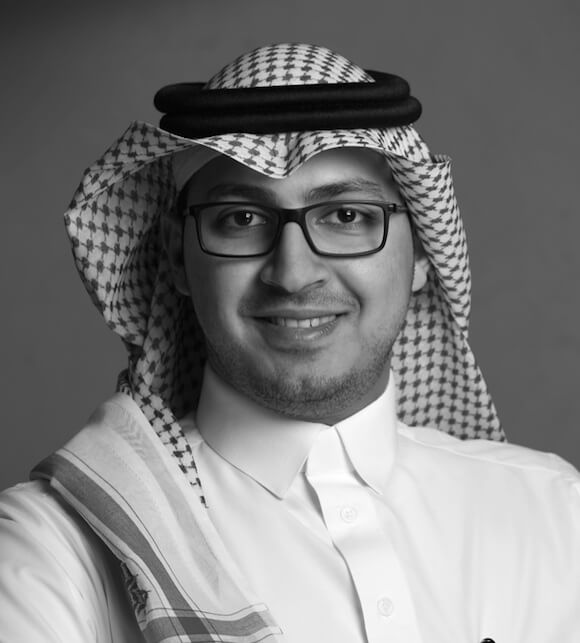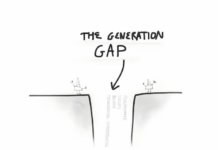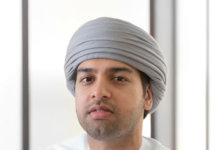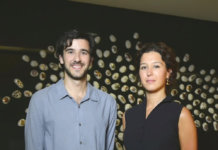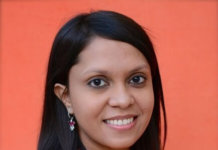Interview with Ahmad Alangari, Al Gihaz
Pioneering Saudi entrepreneur Saeed Alangari started a small contracting business in the Kingdom’s electrical energy sector in the 1970s. Alangari invited his eldest son Sami aboard in 2000 and a decision that was rewarded when his eldest heir guided the family business towards millions of Saudi Riyals in revenue. Today their firm Al Gihaz provides a wide range of products and services which address concerns related to energy, electricity, civil engineering, the environment, infrastructure, industrial and high end technology products, information technology, security solutions, communications, Geographic Information Systems (GIS), Value Added Services (VAS) and real estate development.
The Alangari family business’ story is one of exceptional growth considering that their success was reached across just two generations of ownership. Tharawat magazine spoke to Ahmad Alangari about what it is like to follow in the footsteps of an innovative father and brother, what he believes are the dos and don’ts of joining the family business, and why the older generation should be more patient with Generation Y.
Prior to the family business
Ahmad Alangari is one of six siblings. With two brothers and three sisters, the second generation brings to the family not only quantity but a diverse number of valuable talents. Ahmad works with his father who acts as the chairman of Al Gihaz and an elder brother 14 years his senior who is the vice chairman and president. “In 2000 my brother Sami joined the company, affecting the succession process,” explains Ahmad. “I was at school at the time because my older brother Sami precedes me in age by more than a decade,” says Ahmad. The age difference between the brothers is so pronounced that it nearly seems that Ahmad and Sami belong to different generations, though the gap doesn’t diminish the brother’s appreciation for one another. “My big brother Sami proved to be invaluable to the progress of the company,” he emphasises.
[ms-protect-content id=”4069, 4129″]
Ahmad himself joined the family business a few years ago though not before establishing himself academically. “I worked every summer from the age of 14,” declares Ahmad. “My father got me small jobs at telecom companies and there was a travel agency as well. He wants us to be the best we can be and education was always paramount to him. He was keen for us to finish our degrees before entering the company,” details Ahmad.
“My father started his business in the power and electricity sector and I joined the operations once I graduated from university,” he says. Ahmad’s electrical engineering based course of study gels well with the family business, however he insists that his father never forced his hand. “I studied and lived in Edinburgh, Scotland for five years. I learned how to be more independent and make my own decisions. My father and my older brother used to follow up with me at school and made me write reports during my studies to give them insight into my progress. I think it was a way of assessing my potential to join the family business later on,” he offers in a bid to make clear how in tune the family has remained over the years.
One would expect that Ahmad would have joined the family business promptly upon his return to Saudi Arabia but his father refused. “Instead, I joined one of our competitors in the electrical power sector. I had to start from the very beginning and I was working the field for almost two years which meant toiling in the middle of the desert,” laughs Ahmad. “I learnt so much about how people work in an organisation. It prepared me well to understand how to deal with employees in the family business. Some of the employees have been with us for 25 years. To them it is not about the salary but about the way that they are treated; they feel like they are part of the family. To some of them we are so close that we attend their weddings and other family events.”
Learning on the job
Eventually Ahmad was asked to join the family business by his father and brother, an honour he quickly accepted. “I joined the company in 2011, so it’s been three years. As quickly as I joined, I was also really frustrated as I experienced fear due to the expectations that the family might have. My father had already handed over the business to my elder brother Sami and is today managing charities and real estate investments. Sami is based in Riyadh while I am in Jeddah, which did not allow an easy dialogue. The contrast between working in a corporate company and then joining the family business was significant, not least because in my previous job I was used to working in the field and in the family firm I was put into a management role. I suddenly had to deal with all these different stakeholders, heads of departments, suppliers, customers and family members. In our industry we sometimes have projects that include up to 40 suppliers, so it became paramount for me to learn how to manage them. Building relationships with everybody is very important,” describes Alangari.
Ahmad has spent his childhood in awe of both his father and his older brother’s achievements in the business. As a result, he possesses a strong commitment to sharing in their responsibility for extending the family’s legacy. “It is a huge responsibility especially when I meet clients. I had to build my credibility. It was hard at the beginning. It was my brother Sami who grew the company from a local to a national operation.. My father used to manage everything from A to Z but my brother has managed to decentralise this system into a well-organised corporation. Although this was tough for my father, he trusted Sami and his capabilities, so we made progress.”
Ahmad and his brother Sami have injected specific effort into erecting a strong business relationship, an exercise, which has reaped tremendous benefit. “We started to have more conversations about what our issues and worries are and we started to understand each other. At the beginning it wasn’t easy for me to tell him what my issues were because I thought they expected me to overcome a lot of things myself. My father and my brother are hard-headed businessmen and I am different. I like to learn under less pressure. It was quite difficult for my father and brother at the beginning to accept my work persona but they understood that we are not the same and that everyone has his own character,” explains Ahmad in his quietly determined way.
“My family started giving me business responsibilities gradually. He is forcing me to explore many different business opportunities and so far I am okay with it. It took me some time to understand the regulations of the company and what the work is like,” confesses Ahmad. He’s careful to underline that familial ties don’t always equate to sharing commercial insight.
Ahmad’s familiarity with his family’s business is hard earned as he once experienced lows which tested his desire to remain with the company. “If you had interviewed me a year or two ago I would have said that I sometimes think about leaving,” Ahmad says frankly. “But this is my family’s business. It has been around for most of my life and it is not something that I can let go. My key advantage lies in knowing the family and knowing the kind of business philosophy you will encounter. My brother grew the company from one business to eleven diversified business units and sometimes a question I am confronted with is what my contribution will be. For me it is essential to gain the respect of the employees and my family. I don’t want to just be kept busy, but instead do something that has meaning.”
Generational Ties
“For each one of us brothers it has been a different experience to join the family business: While for Sami and me the experience has been similar with a few years of work outside the business before joining, my younger brother Zubair has had a different journey. He studied business while the rest of us studied electrical engineering. He began working with the family business right out of university. He worked in HR and admin but he felt like he wanted outside experience and so he left. He now has a job in banking. We hope that he will come back to the family business eventually because it is important to have people with different skill sets and experiences. It was hard for us to let Zubair go in the beginning but I think they were right to let him have the outside experience. I know it was good for me and it will be good for him.”
Ahmad is keen to clarify that it is crucial in a family business to show understanding for the different paths younger members might chose. He says: “My opinion is that the older generation, when they feel that they see someone who is not contributing to the business, they immediately think that they are lazy. But sometimes it’s just because no one asked them what they want to do in life. You know the younger generation in the family business also wants to feel like they are changing things and having an impact. They are not just thinking locally but globally and they have their own technology, their own digital tools. Judging them will lead to frustration and they won’t feel like they’re a part of the family. They have lived different lives due to certain technological possibilities and should be appreciated appropriately. They should be allowed room to develop and be given credit for their visions and thoughts,” reasons Ahmad.
“Preparing the next generation for the family business does not just start when they are about to join. From birth they have to be prepared and understand the legacy, and the responsibility it comes with,” Ahmad Alangari concludes. “They have to understand that they are serving the community and that they must appreciate the business and how it develops and affects our lives. This counts for all generations.”
Tharawat Magazine, Issue 23, 2014
[/ms-protect-content]


